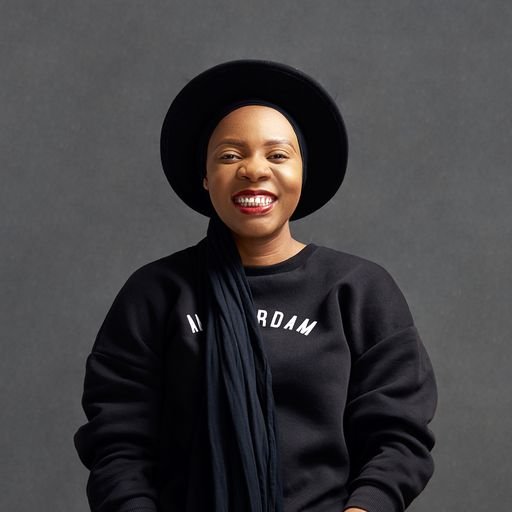20 March 2023
UX Designer, Booking.com
Fari is a multi-talented UX Designer at Booking.com, whose career path has taken her from studying pharmacy to pursuing computer science and eventually discovering her passion for design. Today, she is making waves in the industry by creating products that impact people's lives.
BY MITCHELLE CHIBUNDU
I’m currently a UX Designer at Booking.com. The most rewarding part of my work is being presented with a problem or being aware of a problem and having the opportunity to figure out a solution and influence how people live, experience, and do things.
Tell us about your current role and the most rewarding part of your work
What did you do before what you stated above?
I was a Product Designer at Devcenter.
I was going to study pharmacy in university so that I could have the opportunity to work on the cure for HIV/AIDS, but I failed chemistry in all the external exams that mattered even though I was good at it. The next subject I was also good at was Mathematics. Still, I wanted to study something other than Mathematics, so I decided to study something also analytical: Computer Science.
With that, I planned on working as a software engineer. I started with that, but along the line, I spent more time on the interface of what I was building instead of making it work. The year was 2013, and "Product Design" or "UI/UX Design" wasn't even a thing in Nigeria.
At that time, I thought design was more about how it looked, so I decided to go down that path, but now, it is clear that it is more than that.
What inspired you to pursue a career in design?
Hudi. It’s a product I’m currently working on that was inspired by my personal journey of getting closer to God. I decided to turn my manual process into an app, hoping it would allow others to do the same.
What is something you designed, built or contributed to that you’re utmostly proud of?
IOutside of work, I enjoy relaxing - sleeping, taking a walk, spending some quiet time alone, reading, watching a TV show, and relaxing.
How do you enjoy spending your time when you’re not working?
My work has inspired people to believe that if they want to achieve something, they can if they set their minds to it.
How has your work impacted the larger community or ecosystem?
“Inclusion is important because it helps to bring different perspectives to the products we are building. The more views, the better. With this, it’s more difficult to exclude a group of people from the products we design.”
In my opinion (which people might not agree with), it all touches down to the individual. Show up and take up space.
What, in your opinion, should be done to make more women in design visible?
Inclusion is important because it helps to bring different perspectives to the products we are building. The more views, the better. With this, it's more difficult to exclude a group of people from the products we design.
What role does inclusion play in the design industry, and how can companies better prioritise it?
Other people’s opinions don’t matter as much as you think it does. What you think about yourself will matter more than your skills, which will mostly dictate how you show up.
Is there something you know now, that you wish you knew at the beginning of your career?
I like lifting weights. It's a habit I have built over the years, which has helped me learn self-discipline and self-confidence. I am soft, but in the gym, I am a warrior. It makes me feel strong, confident, and capable of doing anything.
What is an interesting and possibly unexpected fact about you?
It will probably be something very comfortable in a shade of black and white.
What would you wear to a meeting that could potentially change your life?
My advice would be to work on your inner state. Being stuck could be because of the stories in your mind. Stories like "I'm not good enough", "Other people will think x of me and my work", and "I'm a woman, so I can't do x". These stories affect how you show up at work, speak, and deal with uncomfortable situations. You must change the story in your mind for your worldly experience to mirror it.
What advice would you give to other women pursuing a design career who feel stuck in the journey?
Continue reading
Dami Oludumila
A TED Talk on inclusive design changed her life
and gave her meaning. Design has taught her to appreciate the mundane, to see things in new ways,
and to be more humane and empathetic.
Dami's response to why design is simple: why not?





